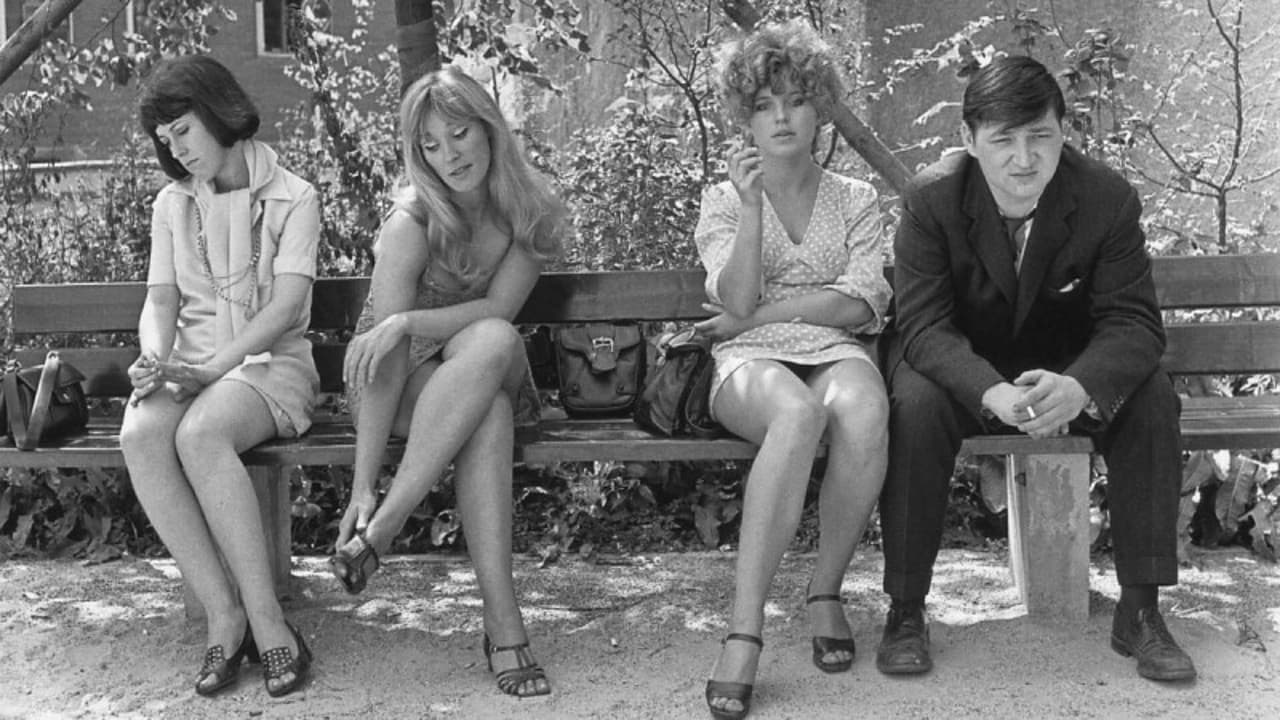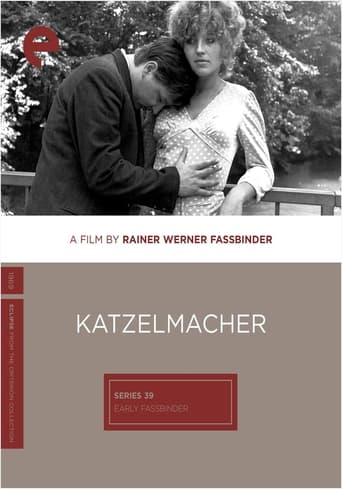

Clever and entertaining enough to recommend even to members of the 1%
... View MoreThis is a coming of age storyline that you've seen in one form or another for decades. It takes a truly unique voice to make yet another one worth watching.
... View MoreI enjoyed watching this film and would recommend other to give it a try , (as I am) but this movie, although enjoyable to watch due to the better than average acting fails to add anything new to its storyline that is all too familiar to these types of movies.
... View MoreThrough painfully honest and emotional moments, the movie becomes irresistibly relatable
... View MoreAnd with that description, I also include myself. "Katzelmacher" is an early career work by German writer and director Rainer Werner Fassbinder. He was in his early 20s still when he made this one and you see by the fact that it is in black-and-white that it's from early in his career, one of his first two full feature films. The cast includes a handful of actors that he worked with on a regular basis, most of all the really young Hanna Schygulla. It's a West German production and of course in German language. Here we have a film that will have its 50th anniversary soon. It runs for approximately 90 minutes and thus is among Fassbinder's shorter works. But I also feel it is among his more difficult to access. I struggled with caring for the characters at all, possibly because the focus is entirely on the dialogues here and very rarely only on what the characters are doing. It's all about the talk. One major plot point is how they deal with a Greek immigrant (which makes it a pretty current issue too), how they talk without respect about him on some occasions, but try to get together with him when they are alone with him. I am talking about the women of course. The Greek guy is played by Fassbinder himself and he is once again a scene stealer. His scenes were the best of the entire film. This movie received a great deal of awards recognition and it was a major success for Fassbinder, especially with the German Film Awards almost half a century later. But like I said, it's a very bleak sterile movie that is certainly not for everybody, possibly not the best choice to start getting into Fassbinder.
... View MoreOf all the films that make me laugh out loud, "Katzelmacher is probably the blackest. How else to justify the enjoyable quality of a movie in which almost all the characters, if not human scum, act that way most of the time. Make no mistake, the young Fassbinder knew exactly what he was doing when he made this early brilliant piece. Every shot has been planned with a single mindedness that enhances the meaningfulness of his exploration of xenophobia and its causes in dissatisfaction with financial circumstances and unfulfilled human relationships. Some eight or so young people of mixed sex pass their time in mainly useless activities. When they are not having it off with one another, generally in a lacklustre way, or playing cards in the local café they spend the time lounging about in the street outside an apartment building, their apartness from each other expressed in the horizontal line they form as they lean against a railing generally staring towards the camera. The building behind is not a slum. It could be a middle class dwelling in any town. The white wall behind is punctuated by windows with flower boxes. This and other settings are never sordid, merely dull. Inside buildings, by seldom moving, the camera reflects the inertia of these aimless people. For the first third of the film nothing much happens. Then there is the sudden entry of a young Greek worker, played by Fassbinder himself, to ignite the latent xenophobic prejudices of the rest of the cast. They wind each other up by exaggerating all those qualities they feel the Greek might have, including being a rapist and worst of all a communist. The men need little to start them off once they learn from one who shares a lodging with the Greek that he has a bigger dick than the rest of them. For the women it is the unfounded rape allegation that sparks indignation and a call for vigilante violence. At the same time as being enormously funny, this part of the film in its depiction of xenophobia as the product of ignorance is hammered home with ferocious integrity. Perhaps the most original touch is the punctuation of the action at various points with brief sequences in which different pairs of characters stroll very slowly between the same two rows of garages to the accompaniment of a badly over-pedalled performance of a piano Schubert waltz. Their laconic comments have the function of a kind of Greek chorus, binding the film together in a curiously subtle way. If you are looking for an early Fassbinder gem, "Katzelmacher" is the one I would recommend.
... View MoreUntil recently "La Guerre du Feu" rated as the worst movie I ever saw. Then I saw "Katzelmacher". A completely useless, empty meaningless piece of utter boredom. The mercifully short scenes are filled with utterly meaningless conversation, delivered without the slightest form of emotion by actors who seem to be to stoned to care anyway (but hey, it's 1969, so I guess that's allowed...) The little action there is, is pointless and boring. Do not look for a story, because what is supposed to be the story has no end whatsoever. I have always been taught that a story has a beginning, a middle and an end. That is definitely not the case here. I guess what irritates me most, is the fact that it's supposed to be that way. Everyone involved goes out of his way to make the experience of watching as taxing as possible. The movie is profoundly un-understandable and it is probably exactly that which has led to its' success. Pretending to understand something that others don't, was and is still the ideal way of setting oneself apart from the others.
... View MoreThe lingering shots, the long continous takes allow for the story to unfold without distractions. Accenting this also is the stark black and white. These uneventful shots and use of black and white also symbolize the bland lives of the people. Which sets-up an uncommon reaction. Since there lives have no action. A simple arrival of a foreigner has these natural gossipers excited and mysteriously annoyed. Soon their jealous and rumours are started. A quiet man only looking for work is transformed into a beast. Thus the film becomes an engrossing social commentary on prejudice and the effects of that and of jumping to conclusions. As well as taking an anti-gossip stand. The film would be a wonderful example in illustrating the events of any countries racial issues.In may be demanding of the viewer though. The long shots and an hour of simple conversation and savage romance become tedious. Hanging on through the whole film though will be rewarding.
... View More